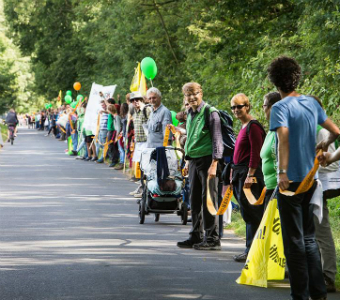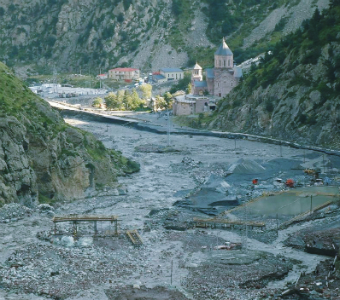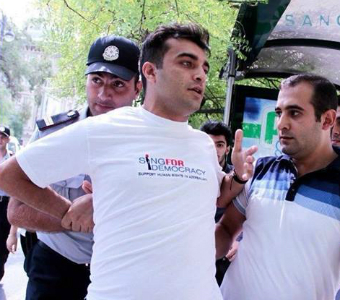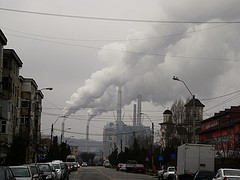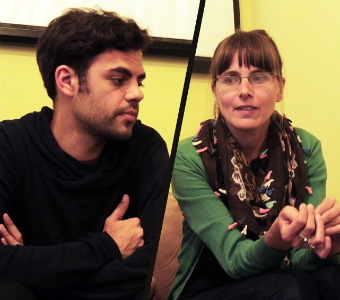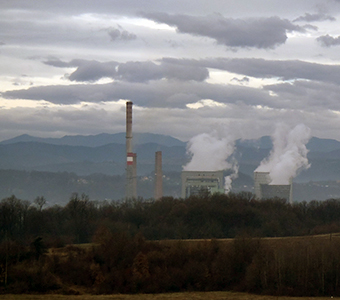August 25, 2014 | Read more This weekend, over 7.500 people came together to form a human chain between Poland and Germany, in opposition to the expansion of lignite mines in the border area. The action, which was organised by Greenpeace with help from other NGOs across Germany and Poland, was meant to show solidarity with villagers in the south-west of Poland and south-east of Germany whose homes and livelihoods are to be destroyed if plans to expand coal mines by PGE in Poland and Vattenfal in Germany are to go ahead.
August 22, 2014 | Read more While likely not the cause, the EBRD-financed Dariali hydropower plant is being constructed without proper assessment or mitigation of known geological risks. The construction must be halted to avoid further damage.
August 19, 2014 | Read more London — Human rights activists in Azerbaijan published yesterday a list of 98 people who are currently political prisoners in the country run by the authoritarian regime of Ilham Aliyev. Ironically, the list includes the names of two of its authors, prominent rights activists Rasul Jafarov and Leyla Yunus, who were arrested under false charges earlier this month while they were working on the report.
August 14, 2014 | Read more Bankwatch and Greenpeace won a court case* in Romania this week, which will effectively prevent 59 hectares (the equivalent of 118 football pitches) of forest from being destroyed by the expansion of one of the open-pit coal mines that supplies Rovinari, one of the largest coal plants in Romania.
July 29, 2014 | Read more Shale gas has become a focal point of interest for central and eastern European governments, with oil corporations (not only) from the West ready to start drilling as soon as possible. But protests have sparked across the region from Zurawlow in Poland to Pungesti in Romania. We spoke with two anti-fracking activists working on the Neuquén province in Argentina where the struggles of local communities against conventional oil and gas exploration are now amplified by even more problems related to unconventional fuels.
July 21, 2014 | Read more As EU Member States continue to negotiate with the European Commission their spending plans for the next Cohesion Policy funds for 2014-2020, the Polish region of Podlaskie in the northeast proves an unexpected champion for the green energy citizen’s revolution in Poland.
July 21, 2014 | Read more After several years of developments related to a seventh unit at the Tuzla power plant in Bosnia and Herzegovina, the public is now able to understand the plant’s economics, thanks to a document published in the run-up to a debate in the Federation of BiH parliament this week. It might have been a better idea to have this debate earlier, considering that the news is not exactly good for the project developer, Elektroprivreda BiH (EPBiH).
July 18, 2014 | Read more Seasoned Bankwatch-watchers may recall our successful four-year campaign to stop the EBRD from financing a waste incinerator just outside Zagreb. Between 2005 and 2008, we supported Zelena akcija/Friends of the Earth Croatia and local group UZOR to prevent the City of Zagreb from building a huge 385 000 tonnes per year waste incinerator in Resnik on the outskirts of Croatia’s capital.
July 11, 2014 | Read more A new report shows how private western-based companies are benefiting from multilateral development banks’ support while governments and citizens in recipient countries are delegated to the sidelines.
July 10, 2014 | Read more Компенсация потерь биоразнообразия в Европейском Союзе станет осуществившейся мечтой для некоторых инвесторов и настоящим кошмаром для природы.
Stay informed
Receive our monthly overviews of the latest developments on the ground.
